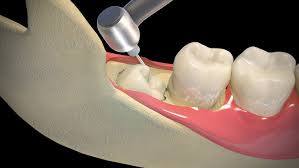Senior Stroke Risk Factors: What You Need to Know to Stay Safe

As we grow older, our health needs more attention, especially when it comes to stroke risks. Did you know that seniors are more likely to experience a stroke than younger adults?
Understanding what causes strokes and how to lower your risk can make a big difference. What simple steps can help protect you or a loved one from a stroke? With the right lifestyle changes and medical support, it is possible to stay safer and live well as you age.
High Blood Pressure and Its Impact
High blood pressure is one of the biggest risk factors for stroke. It puts pressure on blood vessels, which can lead to breaks or blockages in the brain. Many older adults may not feel symptoms until it’s too late.
Regular blood pressure checks can help. Eating less salt, managing weight, and taking prescribed medicine are good ways to control it. Ask your doctor for advice that fits your health needs.
The Role of Diabetes in Stroke Risk
Diabetes can damage blood vessels over time, which raises the chances of stroke. Seniors with diabetes should monitor blood sugar levels closely. A healthy diet with more fruits, vegetables, and whole grains can help.
Physical activity, even light daily walks, also supports better blood sugar control. Talk to a healthcare provider about managing diabetes to reduce stroke risk. Keeping diabetes in check lowers chances of future health problems too.
Smoking, Alcohol, and Unhealthy Habits
Smoking harms blood vessels and increases clotting, making strokes more likely. Drinking too much alcohol can also raise blood pressure and weaken heart health. Breaking these habits might be hard, but it’s worth it.
Support from loved ones or a counselor can help seniors quit smoking or drink less. Making better choices daily, like drinking water and staying active, will lower stroke risk over time and improve overall well-being.
Stroke Risks Linked to Stress and Mental Health
Too much stress can lead to unhealthy behaviors and may raise blood pressure, which increases stroke risk. For seniors, finding calm routines can make a real difference.
Activities like gardening, reading, or talking with a friend can help reduce tension. Meditation and gentle exercise, such as yoga, are also helpful.
Stroke risks linked to stress can be lowered by building a peaceful lifestyle and staying socially connected. Don’t overlook mental well-being.
Regular Checkups and Medical Monitoring
Seeing a doctor regularly helps catch health problems before they become serious. Seniors should keep up with blood pressure, cholesterol, and blood sugar checks. Medicines should be taken exactly as prescribed.
Vaccines and screenings are also important for overall health. Medical care works best when paired with healthy habits at home. Staying on top of appointments can help prevent strokes and keep you feeling your best each day.
Stay Safe by Understanding the Senior Stroke Risk Factors
Understanding stroke risk factors is the first step toward staying safe and healthy in your senior years. From high blood pressure to diabetes, smoking, and stress, each risk can be managed with the right choices.
Living a balanced life with good food, regular activity, and doctor visits helps protect your brain and body. Support from family and friends can also play a big role. With care and awareness, stroke prevention is within reach for every senior.
Explore more helpful articles on our blog to learn about health, safety, and wellness tips for every stage of life.



